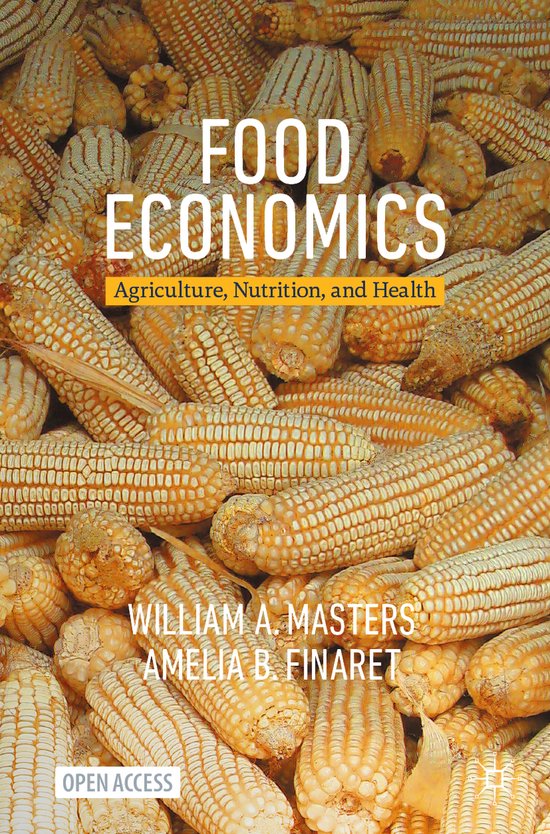Food economics agriculture nutrition and health

Uiterlijk 29 november in huis
Food Economics provides a unified introduction to the economics of agricultural production, business decisions, consumer behavior, and the government policies that shape our food system.
This open access textbook begins with economic principles derived using graphical techniques to explain and predict observed prices, quantities, and other outcomes as a result of individual choices influenced by market structure and public policies. The second half of the book explores available data globally and for the US, covering a wide range of questions in agriculture and economic development, food marketing, and consumption.
Food Economics and its accompanying online resources are designed for advanced undergraduate or introductory graduate courses in agriculture, food, and nutrition policy. The book covers the standard diagrams taught in principles-level courses, with concrete examples and practical insights regarding food production, consumption, and trade. Online resources include data sources, and course materials, including slides, exercises, exams, and answer keys.
William A. Masters is Professor at Tufts University’s Friedman School of Nutrition Science and Policy with a secondary appointment in the Department of Economics. He is Fellow of the Agricultural & Applied Economics Association (AAEA), International Fellow of the African Association of Agricultural Economists (AAAE), a former editor of Agricultural Economics, and a recipient of numerous awards for teaching, research, and policy analysis.
Amelia B. Finaret is Associate Professor at Allegheny College, teaching in the Department of Global Health with a secondary appointment in the Business and Economics Department. She is also Honorary Lecturer for the University of Edinburgh’s Global Academy of Agriculture and Food Systems (GAAFS) and a practicing clinical dietitian at Titusville Area Hospital in Titusville, Pennsylvania. Finaret holds graduate degrees in agricultural and food economics, and she is a registered dietitian (RD) and licensed dietitian nutritionist (LDN).
Food Economics provides a unified introduction to the economics of agricultural production, business decisions, consumer behavior, and the government policies that shape our food system.
This open access textbook begins with economic principles derived using graphical techniques to explain and predict observed prices, quantities, and other outcomes as a result of individual choices influenced by market structure and public policies. The second half of the book explores available data globally and for the US, covering a wide range of questions in agriculture and economic development, food marketing, and consumption.
Food Economics and its accompanying online resources are designed for advanced undergraduate or introductory graduate courses in agriculture, food, and nutrition policy. The book covers the standard diagrams taught in principles-level courses, with concrete examples and practical insights regarding food production, consumption, and trade. Online resources include data sources, and course materials, including slides, exercises, exams, and answer keys.
- 1 Bekijk alle specificaties
Taal: en
Bindwijze: Paperback
Oorspronkelijke releasedatum: 01 mei 2024
Aantal pagina's: 476
Hoofdauteur: William A. Masters
Tweede Auteur: William A. Masters
Hoofduitgeverij: Palgrave Macmillan
Product breedte: 155 mm
Product lengte: 235 mm
Verpakking breedte: 155 mm
Verpakking hoogte: 28 mm
Verpakking lengte: 235 mm
Verpakkingsgewicht: 756 g
EAN: 9783031538391